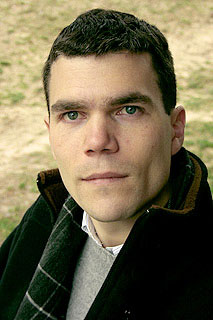Professor Derek Turner took the podium at last week’s Pizza and Profundity lecture, an ongoing lecture series hosted by the Philosophy Department. The series features speakers both from Conn (such as Turner) and experts visiting from other universities across the country to discuss philosophical issues.
Once the applause had subsided, Turner addressed the “large crowd” his lecture had drawn. Indeed, the event proved far more popular than I had anticipated and I was relegated to a less than ideal seat in a corner behind a television set.
The first portion of Turner’s lecture was largely focused on the science behind his argument. Any hopes of the Jurassic Park scenarios hinted at in the talk’s title “The Ethics and Science (Fiction) of Extinction Reversal” were dashed rather quickly. Regardless, it was near impossible to come away disappointed by Turner’s insights into the science of extinction reversal. His passionate energy towards the subject, as well as his modesty – he freely admits that this research is all relatively new to him – made the information, running from long-shot theories by Japanese scientists to cutting-edge experimental breakthroughs, all the more engaging. Though Turner seems to rule out anything too outlandishly sci-fi, at least for the foreseeable future, he admirably laid the scientific groundwork for the debate about potential extinction reversal.
As the discussion of the ethics behind this science began, it became apparent to what extent the lecture demonstrated the virtues of the liberal arts: a philosophy professor has independently researched a scientific topic to bridge the gap between disciplines and has presented his findings to the entire college community for discussion and dialogue.
This bridging certainly provided some interesting ethical conclusions. Turner came to the surprising conclusion that two schools of thought typically taken to be central to environmentalism seem largely incompatible. Bioconservatism, which says that we shouldn’t use technology or other means to restore ecosystems, is directly at odds with restorationism, which says we should do our best to intervene in the environment. Turner pointed out that modern environmentalism incorporates both paradigms, and that the question facing us now is whether to reject one of the positions or try to find a compromise between them.
By viewing this scientific issue through the lens of philosophy, Turner made himself just as much participant as speaker. He made his biases clear throughout, but encouraged the audience to prove him wrong or present the issue to him from another angle. He was searching for answers and clarity just as much as his audience was.
The prepared portion of Turner’s talk concluded just as the pizza arrived, and everyone took a recess to grab some refreshments. Once the group reconvened, the crowd had thinned substantially, but the most engaging part of the event was yet to come.
As Turner opened the floor for questions, it quickly became apparent that Turner had set himself up to be put on the spot for quite some time. The talk proved provocative enough to elicit questions and comments from the audience ranging from those interested in Turner’s opinions on the plausibility of finding sufficient gene pools for true extinction reversal, to insights on the artificial selection of more shearable sheep to a student who weighed the benefits of a Poison Ivy-style bioterrorist approach to environmentalism.
Even more interesting than these inputs, however, was seeing Turner’s response style. He took no comment lightly, and it was clear that he weighed each opinion against his own beliefs before responding. This rapport between students, other staff members and Turner himself was perhaps more indicative of a quintessential liberal arts experience than the mere mixing of disciplines at work here. •










